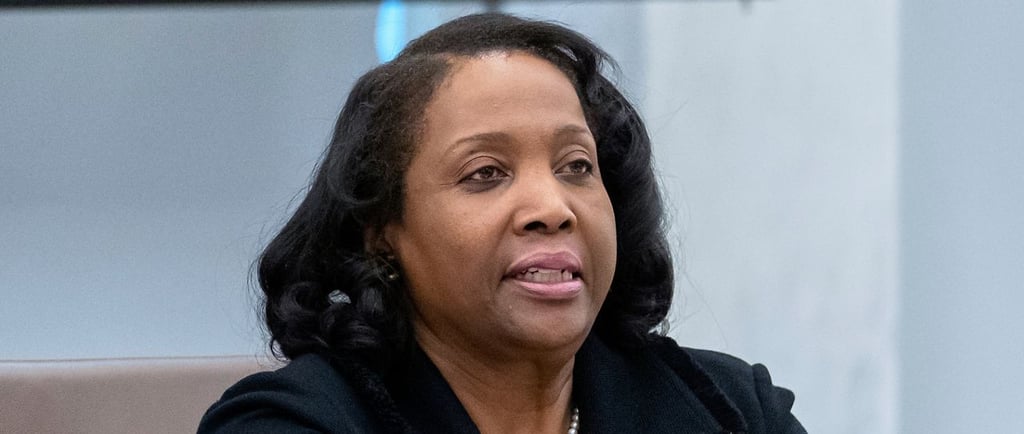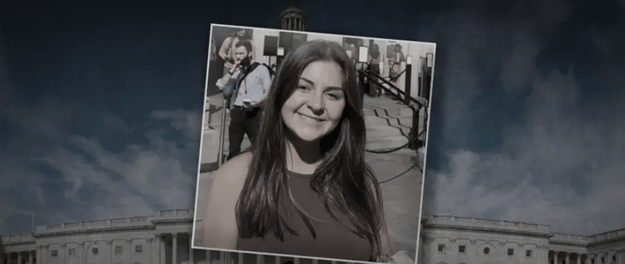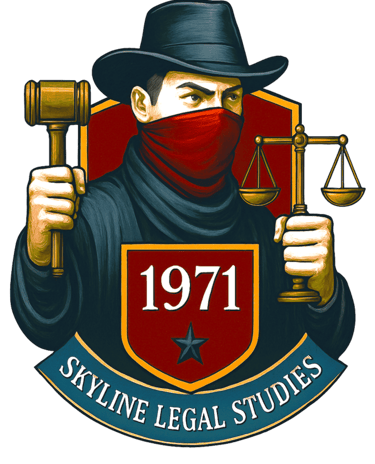September 2025
Genesis Fuentes, Diana Flores, and Hayley Rios


Trump’s Removal of Federal Reserve Member Lisa D. Cook
by Hailey Rios
The Federal Reserve is the “central bank of the United States.” It functions to ensure the effective operation of the U.S. economy and, overall, the public's interest. Lisa D. Cook is a Federal Reserve Board member and has been since 2022. She was appointed by former President Joe Biden and is known for being the first black woman to serve on the board.
Donald J. Trump, the United States current president, sought to remove Lisa D. Cook from the Federal Reserve Board on August 25, 2025. The reason? Trump alleged that Cook made contradictory representations in her mortgage payments before she even joined the Fed. These “contradictory representations” were simply that Cook had two different properties filed as her primary residence. These are unproven allegations, and Cook has not been charged with any crime. As of now, reports state that Cook’s Georgia estate was not referenced as a primary residence but rather a “vacation home.”
Many argue that if Trump’s removal of Lisa D. Cook is approved by the Supreme Court, it would “signal an end to the Federal Reserve’s independence.” Ever since it was created in 1913 with an act by Congress, independence in the Federal Reserve means that they can set their own interest rates without “interference from Congress or the White House, even if politicians are unhappy with Fed policy.” If direct control from politicians, or even if the president were to aim at the Federal Reserve’s power to set interest rates, the likely outcome would be a higher inflation rate.
By law, “members of the Fed's seven-person Board of Governors can only be removed "for cause” by a President, which is stated in section 10 of the Federal Reserve Act. No where in the statute is the term “for cause,” explained directly. However, no President has ever pulled this move before, it is unprecedented. On September 9, 2025, “a federal judge in Washington D.C., temporarily blocked President Trump from firing Cook.” The U.S. District Judge Jia Cobb explained that Trump’s reason to fire Cook did not fall under the “for cause” needed in order for it to move forward. Judge Cobb stated that “it concerned conduct that allegedly occurred prior to Cook's Fed appointment and wasn't job-related.” Adding to that, President Trump asserted that “Governor Cook was entitled to no process before her purported removal,” which violates the Fourteenth Amendment. Under the Fourteenth Amendment, the due process clause applies to everyone, and not just to people in a criminal matter.
Looking from the outside in, Donald Trump is attempting to take control of the Federal Reserve by removing a member who might not agree with his ideology. In other words, the current president of the United States is seeking direct control of the economy. Although some might not be interested in finance or business, if there is an unfair outcome to this dilemma, it will affect everyone.
Works Cited
Hill, Jon. “Trump Asks High Court to Let Him Remove Fed’s Cook.” Edited by Robert Rudinger and Emily Kokoll, Lexis+® - Sign In | LexisNexis, plus.lexis.com/newsstand/law360/article/2389789/?crid=8d65c106-178a-45d6-8580-5651cf08a0a0. Accessed 25 Sept. 2025.
Horsley, Scott. “Federal Judge Blocks Trump from Firing Fed Governor Lisa Cook, for Now.” NPR, NPR, 10 Sept. 2025, www.npr.org/2025/09/09/nx-s1-5529281/appeals-court-lisa-cook-federal-reserve-independence-trump.
“Federal Reserve.” Federal Reserve Board - Home, www.federalreserve.gov/default.htm. Accessed 25 Sept. 2025.
Sherman, Mark. “Trump Asks Supreme Court for Emergency Order to Remove Lisa Cook from Fed Board.” PBS, Public Broadcasting Service, 18 Sept. 2025, www.pbs.org/newshour/politics/trump-asks-supreme-court-for-emergency-order-to-remove-lisa-cook-from-fed-board.
“No. 25A312 Donald J. Trump v. Lisa D. Cook.” Supremecourt.Gov, www.supremecourt.gov/DocketPDF/25/25A312/377893/20250925151427957_202 50925%20Cook%20SCOTUS%20Stay%20Opposition.pdf. Accessed 26 Sept. 2025.
Wessel, David, et al. “Why Is the Federal Reserve Independent, and What Does That Mean in Practice?” Brookings, 14 July 2025, www.brookings.edu/articles/why-is-the-federal-reserve-independent-and-what-does-that-mean-in-practice/.


The Unfair Justice System for Survivors of Sexual Assault
by Diana Flores
Sexual assault is one of the most serious crimes in society, yet it is too often mishandled by the justice system. While the law prohibits nonconsensual sexual acts and imposes strict penalties, including imprisonment, sex offender registration, and fines—most survivors never see justice served. Common law was created to protect victims and hold offenders accountable, but in practice, the system frequently fails to meet this goal. Survivors are not believed, court cases are delayed, and victims are treated unfairly compared to offenders. These failures demonstrate that the justice system is not upholding its responsibility to protect those harmed by sexual violence.
One of the greatest barriers survivors face is disbelief. Victims often report their assaults only to be doubted by police or dismissed by courts. According to Unfounded Sexual Assault: Women’s Experiences of Not Being Believed by the Police, while fewer than 5% of assaults are reported, one in five of those reports is dismissed as “unfounded.” This disbelief not only silences survivors but also inflicts additional harm—social, emotional, and even physical. In Meritor Sav. Bank v. Vinson (1986), the Supreme Court recognized sexual assault as a form of sexual discrimination, yet courts still demand almost impossible levels of evidence. The Rape, Abuse, and Incest National Network reports that of every 1,000 sexual assaults, only 50 result in arrests, 28 in felony convictions, and 25 in incarceration. These numbers highlight how rarely survivors see their attackers held accountable.
Delays in the legal process further weaken justice. Sexual assault cases often take years to move forward, forcing victims to relive trauma while justice is postponed. In some cases, charges are even dismissed because of trial delays. For example, Yahoo! News reported that rape charges against a San Francisco man were dismissed after repeated postponements by the court. Such delays deepen survivors psychological harm, leaving them feeling unsafe, isolated, and unable to heal. Even though U.S. Code § 920 classifies sexual assault as a serious felony, delays in reporting and prosecuting allow offenders to escape consequences, undermining the severity of the crime.
Beyond disbelief and delays, survivors are often mistreated in the courtroom itself. Instead of focusing on the offender’s actions, courts frequently interrogate victims about irrelevant details such as their clothing, alcohol consumption, or behavior on the night of the assault. The Spotlight Initiative documents survivors being asked humiliating questions like, “What were you wearing?” or “Were you drinking?” Such treatment shifts blame onto survivors, making them feel as if they are on trial rather than the offender. This re-traumatization forces victims to fight to be believed, while perpetrators are often given excuses.
Ultimately, the justice system’s failures leave survivors abandoned and offenders free to harm again. If laws and common law protections were applied properly, victims would be heard, and perpetrators would face appropriate consequences. Instead, disbelief, delays, and unfair treatment reveal a system that denies justice to those who need it most.
In conclusion, the justice system fails survivors of sexual assault by refusing to believe them, delaying their cases, and mistreating them in court. These failures not only silence victims but also allow offenders to walk free, undermining both legal protections and public trust. Change is essential. The justice system must apply the law fairly, reduce harmful delays, and stop blaming victims. Only then will survivors receive the justice and protection they deserve.
Works Cited
Spotlight Initiative. (2025, September 26). What were you wearing? UN exhibit demands justice for survivors of sexual violence. Spotlight Initiative. https://spotlightinitiative.org/news/what-were-you-wearing-un-exhibit-demands-justice-survivors-sexual-violence
Miller, J. P. (2023, December 8). Time to heal: Trauma's impact on rape & sexual assault statutes of limitations. Texas A&M Law Review. https://scholarship.law.tamu.edu/cgi/viewcontent.cgi?article=1304&context=lawreview
Egelko, B. (2025, September 24). S.F. rape case dismissed because of multiple trial delays. San Francisco Chronicle. https://www.yahoo.com/news/articles/f-rape-case-dismissed-because-rainn.org/facts-statistics-the-scope-of-the-problem/statistics-the-criminal-justice-system/
Murphy-Oikonen, J. (2020, December 11). Unfounded sexual assault: Women’s experiences of not being believed by the police. National Center for Biotechnology Information.https://pmc.ncbi.nlm.nih.gov/articles/PMC9136376/


The Laken Act
by Genesis Fuentes
The Laken Riley Act is a new law passed recently, in 2025, after the tragic death of a college student named Laken Riley. The man accused of killing her was an undocumented immigrant. This sparked fear for stricter rules. The law requires the government to hold undocumented people in jail if they are charged with certain crimes, such as theft, attacking a police officer, or causing serious injury or death. It also lets states sue the federal government if immigration laws aren’t enforced.
The Laken Riley focuses on safety. It's meant to keep people in jail if they are charged with serious crimes. It lowers the chance that they can harm others while waiting for trial. Supporters believe it closes gaps in the system that allow dangerous people to stay free in communities. This law, also passed, focuses heavily on immigration rules. For many people, this shows that leaders are taking crime and border security seriously.
On the other hand, there are several downsides. First, the law requires the detention of people who are only charged, not yet proven guilty. In the U.S., everyone is supposed to be innocent until proven guilty. Critics say this could hurt the rights of people who are later found not guilty.
Another problem is discrimination. Tying immigrants directly to crime could make immigrant groups feel unfairly targeted, leading to more fear and less trust in police. That could actually make communities less safe, since people may avoid reporting crimes. There are also financial issues. Detaining more people means more money spent on jails, staff, and court cases. Immigration courts already have long delays, and this law could make the backlog even worse.
While giving states the power to sue sounds good, it could create long and expensive legal battles. This might pull money and focus away from things that are actually important, like schools or healthcare. The Laken Riley Act was supposed to improve safety and show stronger immigration enforcement. Supporters of the act believe it protects communities and prevents tragedies. But its critics warn it could harm fairness, cost a lot of money, and make immigrant communities feel targeted. Like many new laws, it has both good and bad sides, and people disagree on whether it does more harm or good.
Works Cited
Congress.gov. (2025). H.R.29 - Laken Riley Act (119th Congress). U.S. Congress. https://www.congress.gov/bill/119th-congress/house-bill/29
Congress.gov. (2025). S.5 - Laken Riley Act (119th Congress). U.S. Congress.https://www.congress.gov/bill/119th-congress/senate-bill/5
© 2025. All rights reserved.
Address
Skyline High School
Legal Studies Magnet Program
7777 Forney Rd
Dallas, Texas 72227
Contact
info@SkylineLaw.org
Att: Mr. H. Rodriguez, Lead Teacher



